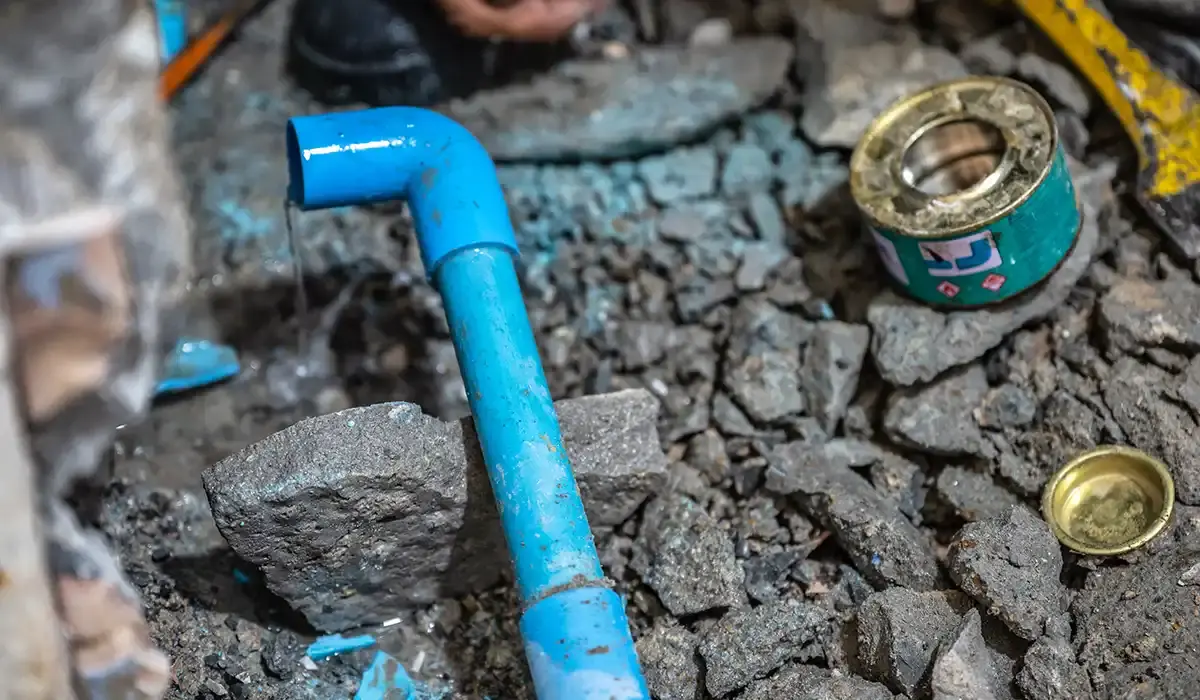Plumbing
Can Drano Harm Your Pipes? Experts Share Safe Usage Tips

Drano Pipe Safety Tips: How to Protect Your Plumbing While Clearing Clogs
A home’s plumbing system directs clean water to faucets, showers, and appliances while safely removing wastewater through drainage lines effectively.
However, these pipes can develop clogs over time, obstructing flow and making chemical drain cleaners a tempting solution for homeowners.
While products like Drano offer quick results, improper use can harm older plumbing systems and delicate fixtures over repeated applications consistently.
You might also enjoy the articles on our other site: COSRX Unveils Debut Haircare Line Featuring Patented Peptide-132
What Is Drano and How It Works
Drano is a chemical drain cleaner containing lye, aluminum, salt, bleach, and sodium nitrate to break down organic material efficiently.
The lye decomposes clogs while aluminum reacts, producing heat that accelerates the breakdown of hair, grease, and soap buildup in drains.
Adding warm water enhances the chemical reaction, generating even more heat and promoting faster decomposition for minor to moderate blockages effectively.
Hydrogen bubbles form as the lye interacts with softened grease, loosening debris and carrying particles down the drain without physical intervention required.
Is Drano Safe for Plumbing?
Due to its chemical composition, Drano should be used sparingly to avoid damage to plastic pipes, glue joints, or porcelain fixtures.
Excessive use can leave residue in pipes, slowly corroding plumbing materials and potentially causing leaks or more extensive damage over time.
Drano can also react with other household chemicals, producing harmful fumes that may escape through drains and irritate respiratory systems immediately.
Direct contact with Drano is hazardous, as its caustic properties can cause chemical burns or severe skin irritation on contact surfaces.
Safer Alternatives to Clear Clogs
Before turning to chemical cleaners, consider safer solutions that physically or biologically remove clogs without harming plumbing consistently.
- Use a plunger appropriate for the type of drain, as proper suction can dislodge clogs efficiently without chemicals.
- Drain snakes slide into pipes to grab or break up clogs near the drain or along simple plumbing paths.
- Enzymatic cleaners use bacteria and natural enzymes to consume organic debris, clearing clogs without damaging pipes chemically.
- Drain augers, which are longer or motorized than snakes, can reach deep clogs and remove obstructions effectively.
When to Use Drano
Drano can be effective for minor clogs caused by hair, food, or grease where physical methods fail temporarily.
Shower drains with soap scum or hair accumulation are ideal scenarios for Drano use, preventing stubborn blockages from forming consistently.
Homeowners should follow Drano Pipe Safety Tips, avoiding frequent applications and thoroughly flushing pipes with hot water to remove chemical residue.
These safety tips reduce risks of pipe corrosion, fixture damage, or harmful chemical reactions in multi-drain systems around the home.
When to Avoid Drano
Avoid using Drano on delicate materials, including porcelain or older pipes, which can crack or weaken under intense chemical heat immediately.
Recurrent clogs, nonorganic blockages, or persistent drain issues require mechanical methods like plungers, drain snakes, or augers instead of Drano safely.
Repeated chemical use can worsen pipe conditions over time, leaving homeowners vulnerable to expensive repairs and more extensive plumbing problems consistently.
When to Call a Professional
Not all clogs respond to DIY solutions, and professional plumbers can assess and resolve stubborn problems efficiently without harming pipes.
Inform plumbers if you have recently used Drano or other chemicals, so they can take safety precautions before handling plumbing lines.
Experts can use specialized tools, cameras, or mechanical methods to remove clogs while preventing accidental damage to older or delicate plumbing systems.
Conclusion
Following Drano Pipe Safety Tips ensures you can clear minor clogs without risking damage to pipes, glue joints, or fixtures effectively.
Safer alternatives, proper usage, and professional guidance when necessary protect your plumbing while maintaining optimal home water flow consistently.
You might also enjoy the articles on our other site: Mia: Name Meaning, Origin, and Personality Traits
Explore more news on this website for additional plumbing guides, cleaning tips, and expert advice for protecting household drainage systems effectively.
